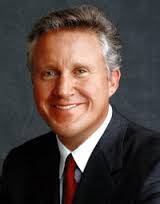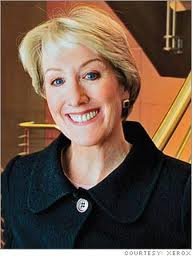At the Roundtable Martin Schader the Associate Director, Quality Services, EFMD, and Rebecca Taylor, Dean Open University UK, spoke during the breakout sessions on Roundtable on New Technologies & Accreditation. Discussing how MOOCs are now becoming more prevalent in education as well as how different technologies can be embedded in the learning experience.
Martin Schader

Martin Schader presented an overwhelming overview about MOOCs.
Martin Schader gave a short introduction to MOOCs and the hype that surrounded them to begin with. The models are now moving forward and there are now nearly 600 MOOCs in Europe. Science and technology are the most important MOOCs in terms of numbers.
He gave some examples such as Coursera, EdX and Udacity and the other large MOOCs. Future Learn is also beginning to develop as well.
Mr. Schader went on to speak about the predicted tsunami or avalanche and all the predictions surrounding it. He considered that MOOCs would have an impact on the system but rather on the margins and will lead to the development of hybrid courses instead of actually replacing business schools and universities.
Access all GlobalEd conference articles here.
He then closed his speech by inviting all willing participants to join the debate by contributing to the number of research initiatives that are currently being developed in the area.
Rebecca Taylor, Open University, UK

Rebecca Taylor on technology in education.
So how do we embed technology in learning? She spoke first about the OU which was established in 1969 with technology being a key feature of the teaching method. The model allows people to “earn as they learn”. They increasingly use smart phones, iPads etc. Thus they adapt as technology continues to change. They now have a variety of different platforms with which they can teach their course. They also have a variety of learning methods including self-study, mixed media, collaborative learning, small group tutorials etc. Different studies show the importance of technology to students for learning. Business students also seem to be the highest users of these technologies according to data from the OU.
The OU has very active peer to peer feedback platforms so that participants can learn from each other. Interactive tools are also seen as an important part of the offer from the OU. The university encourages digital literacy but students say that technology needs to be embedded and not just added on.
 Ms. Taylor warns that you should never underestimate the levels and the skills required from your staff.
Ms. Taylor warns that you should never underestimate the levels and the skills required from your staff.
‘You need to ensure that your staff have the skills and a real passion for this type of learning.” she said.
MOOCs are also becoming more and more present at the OU. Initially, it was hard to understand the business model. However, their first attempt at MOOCs attracted many learners some of whom will continue to do more traditional types of learning. The corporate world is also interested in this as well. MOOCS should be put into the framework of a strategy for learning.
Keith Pond, Loughborough University

Keith Pond
He began by talking about supply and demand for e-learning. Students are increasingly asking why they are sitting in a lecture hall when they can read things in a book. He pointed out that academics will traditionally question why we need to do things. Less than half of the audience were using lecture capture. He then suggested that all students learn differently and there is a need to look at the VARK (Feming, 2014) framework. We need to think about the things that we help us get there. Students are a great help in the drive for technology in classroom.

Force-field analysis of 2 groups having different opinion on e-learning.
Traditionalists, finance directors, busy people and risk avoiders are the ones hindering the development of e-learning. In fact 43% of professors said that they don’t use it because they simply don’t have enough time.
The university has introduced “Lecture Capture.” Many professors like it because it gives a useful revision tool and helps them up their game when a camera is pointed at them. It is also a useful tool for international students.
Other professors feel that it spoon feeds students, leads to lower attendance, which means that you cannot tell jokes and requires more work.
 Rebecca Taylor
Rebecca Taylor
Professor Rebecca Taylor is the Dean of the Faculty of Business and Law at The Open University (since October 2011). Professor Taylor is a Professor of Economics and was previously at Nottingham Trent University where she was Associate Dean at Nottingham Business School. She was previously the Head of the Economics Department and her research interests lie in the field of International Economics and Developments in Economics Education. Rebecca has directed a number of HEFCE funded teaching and learning projects including Mathematics for Economics: Enhancing Teaching and Learning (METAL), Teaching Resources for Undergraduate Economics (TRUE), and Depository of Statistical Resources for Social Sciences (DeSTRESS).
See also:
“Be what’s next”: An afternoon at the Microsoft Headquarters in Seattle
Redmond, February the 13th 2014: we arrived at the Microsoft Headquarters and are welcomed by Steve Seow – a Technical Evangelist at Microsoft. The visit starts with a little tour to get to Pike Place, where we are going to spend most of the day. Pike Place is a big cafeteria for Microsoft’s employees. We are all amazed by how beautiful, huge and modern the campus is and we can really feel the innovative vibe surrounding us.
Business Week 2014 – Day 2 – Bloomberg LP
 Let’s start this very busy day visiting the company of maybe the most popular and appreciated person in New York: Michael Bloomberg. For more than 30 years now, he has built the wider empire disclosing financial information all over the world
Let’s start this very busy day visiting the company of maybe the most popular and appreciated person in New York: Michael Bloomberg. For more than 30 years now, he has built the wider empire disclosing financial information all over the world
MOOCs: the (Loch Ness) Monster of Higher Education?
“MOOCs are the monster under the bed!” boomed a Dean at an academic conference just over two years ago. “And soon, they are going to come out and get us all!” Two years on and the idea of revolutionary change in higher education seemed to have been mitigated somewhat. The 2014 EFMD Annual Conference in Vienna brought out a more moderated view suggesting that they would make a contribution to teaching and learning, but they would in not way replace the traditional university. Sense at last. If MOOCs are the monster, perhaps they, or at least their underlying business model, are more of the Loch Ness variety. Talked about by many, but very difficult to find.

















Pingback: MOOCs: the (Loch Ness) Monster of Higher Education? | GlobalEd